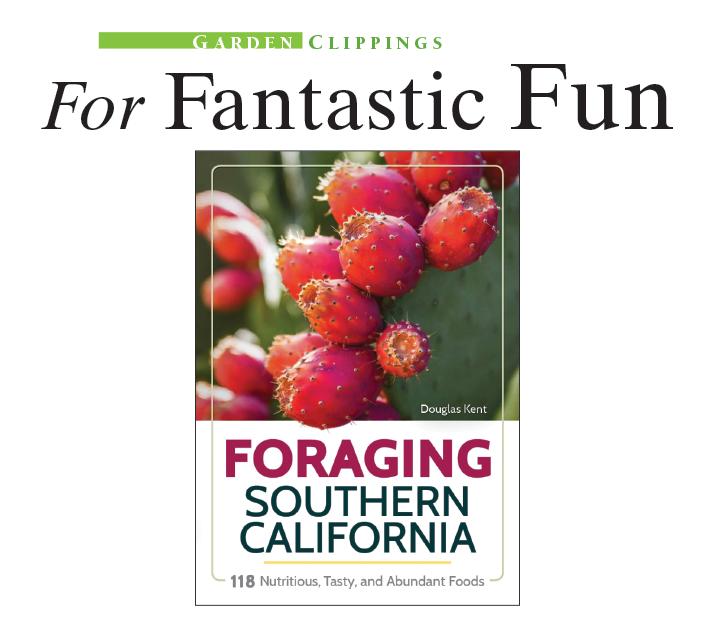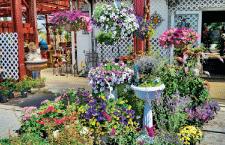
The next time you take a walk or go on a hike, keep an eye out for snacks along the way. Growing in the wildlands of Southern California, and even in our yards and neighborhoods, are an abundance of edible “weeds.”
Discover how plants like dayflower, sourgrass and stinging nettle are quite tasty and even nutritious in Douglas Kent’s new book, Foraging Southern California: 118 Nutritious, Tasty, and Abundant Foods. Kent, who lives in Orange, will be speaking about foraging at Orange Home Grown’s Education Garden on November 16 from 10 am to 11 am.
An adjunct professor at Cal Poly Pomona, Kent has taught courses that have touched on foraging since 2008. He began eating weeds in 1979 as a teen under the direction of his garden mentor and great aunt, Catherine Peck.
“I was 14 at the time and ate the weeds out of respect for her, because she was teaching me to garden and suggested I do so. That experience colored the way I look at landscapes,” says Kent, who has biked the California coast and foraged along the way. One of Kent’s favorite places to forage in Orange is Santiago Park, especially the Santiago Nature Center.
“Foraging is a fun outdoorsy activity that you can share with family and friends,” says Kent, who features in his book 118 plants that can be foraged, many of which can be found growing wild locally. These include 20 plants considered super foods.
“Plants like cheeseweed, dandelion, chickweed, fennel, mustard, lambsquarters and goosefoot, curly dock, purslane, amaranth, miner’s lettuce, watercress and blackberries are loaded with antioxidants. They rank right up there with spinach and broccoli,” says Kent, who worked on the book for six years. The handy guide contains photos of the plants, as well as habitat and season.
In addition to being fun and nutritious, foraging is also good for the environment. “Many of the plants I recommend for foraging aren’t native ones,” he says. “They are plants that are pushing out native species. By eating them, we help reduce their numbers, which is good for the health of our local ecological areas.”
In the book, Kent also offers important pointers for ensuring that you stay safe while foraging. He has a section on top poisonous plants with their photos and descriptions. He also covers the possible risks of foraging. These include food allergies and the presence of herbicides and pathogens. He suggests, for instance, avoiding foraging around livestock and in areas with urban dogs. Always wash your harvests well and cook them if picked from such environments.
Meet Kent, who will be speaking about foraging and signing his book on Saturday, November 16, 2019 from 10 am to 11 am, at the Orange Home Grown Education Farm. The farm is located at 356 North Lemon St. in Old Towne. Kent is also appearing at REI in Tustin on November 15, 2019 from 7 to 8:30 pm.



